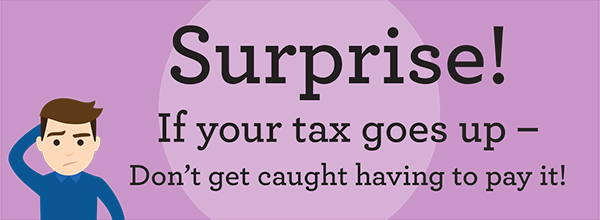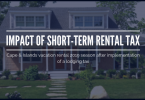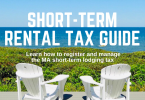The lodging tax that was expanded to include short-term rentals on January 1, 2019, was based on town rates that were already in effect. Since that date, however, several towns have already increased the local tax, and we suspect that more towns will follow suit.
Rental homes in a town with a local tax of 6% are already at the maximum local tax rate. But if your home is in a town with a 4% local tax (5% in Falmouth), there is a potential for a rate increase. Even homes on the Islands with a local rate already at 6% also face the potential for a 2.75% Cape Cod and Islands Water Protection Fund tax if the Island joins the Fund.
Protect yourself!
Be aware that, according to the MA Department of Revenue, the tax is determined as of the date of tenancy, not the date when the lease was signed:
“Lease contracts should include provisions that all state and local taxes and fees are due as of the date of occupancy, so occupants are aware that additional amounts may be due if rate or fee changes occur after a contract is signed. Whoever collects the rent is responsible for the payment of the tax or fee due based on the effective date of the change, not the date a contract was signed or any money was collected.”
If your rental home is in one of the towns that faces the possibility of a tax increase (by town or Water Protection Fund), we recommend that you add the following clause to your lease:
*According to the MA Department of Revenue, the tax rate is determined as of the date of occupancy. If a rate increase occurs, Tenant is responsible for any additional amounts due after this contract is signed.
List of locations subject to a tax increase
All Nantucket towns
– The local tax rate is already 6%, but the Island could join the Water Protection Fund (2.75%)
All Martha’s Vineyard towns
– Some towns are 4% and some 6%, but the Island could join the Water Protection Fund (2.75%)
Dennis – 4%
Eastham – 4%
Falmouth – 5%
Harwich – 4%
Sandwich – 4%
Truro – 4%
Wellfleet – 4%
Chatham – 4%
Hull – 4%
Duxbury – 0
Mattapoisett – 0
Marion – 0
So, if your property is not already subject to the highest lodging tax rate (14.45%), be aware that your rate could increase. And be sure to protect yourself in case it happens after you have signed leases.







